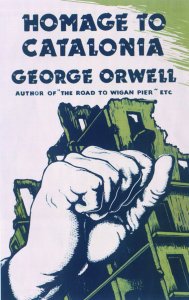What’s the point of having a pope if every time he says something your response is “Yeah, yeah, we already knew that”?
Anybody watching the months-old tenure of Pope Francis has figured out the pattern by now: 1) Pope says something provocative; 2) secular media thinks it means a change in Church teaching; 3) Catholic Right says “It’s nothing new!”; 4) Rinse, repeat.
Look, I understand being frustrated that the secular media reports on Church teachings without being fully versed on the Catechism—but that really shouldn’t be surprising.
But I also see a big problem with just assuming that everything the Pope says is just more of the same. Namely, it excuses you from the responsibility of actually listening to him.
To wit: At the end of July, Cardinal Francis George, the Archbishop of Chicago, decided to withdraw church funds from the Illinois Coalition for Immigrant and Refugee Rights because the board of the coalition publicly expressed its support for gay marriage. That is, the Church thought that the work of the Coalition was good, and they were willing to work with them to achieve that good work, until the Coalition said something disagreeable to the Church.
This comes two months after Pope Francis stressed the importance of meeting one another doing good. That sermon was more famous for the Pope’s insistence that even atheists are redeemed by the blood of Christ (and for the controversy that caused), but the important concept in it was what Francis called “the culture of encounter.”
Here’s what he said:
“And we all have a duty to do good. And this commandment to do good, I think, is a beautiful path towards peace. If we, each doing our own part, if we do good to others, if we meet there, doing good, and we go slowly, gently, little by little, we will make that culture of encounter: we need that so much. We must meet one another doing good. ‘But I don’t believe, Father, I am an atheist!’ But do good: we will meet one another there.”
That seems to me to be the opposite of what Cardinal George is doing in Illinois; rather than meeting the Coalition board in its good work, rather than recognizing the best in them, he’s emphasizing their difference and what he sees as their error. And he’s refusing to do good with them.
Cardinal George quotes Pope Francis in his statement about the decision. Specifically, he cites Lumen fidei, noting that Francis wrote there that marriage should be “a stable union of man and woman,” based on the “goodness of sexual differentiation.” But that could have been written by any of Francis’ predecessors—in fact, it probably was written by Pope Benedict XVI, who started the work on that encyclical. And so the pattern continues. Pope Francis is doing some wonderful and, yes, different things. But certain segments of the Catholic Church seem too wrapped up in finding continuity to pay attention to them.

 What I take from that is that when you have special knowledge of a political situation, you have a special responsibility to share that knowledge. And because of my new job, I happen to know things, too.
What I take from that is that when you have special knowledge of a political situation, you have a special responsibility to share that knowledge. And because of my new job, I happen to know things, too.